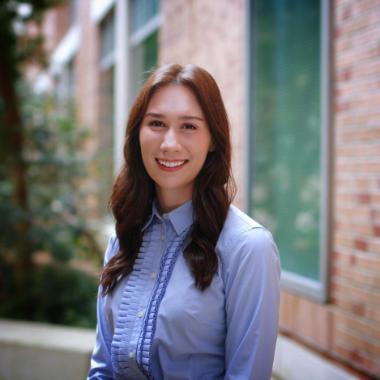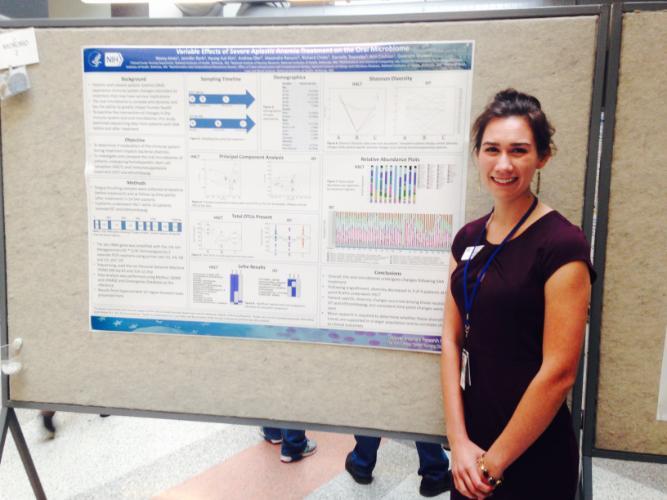Sarah Mudra, '16
As I use the intellect that has been endowed to me by the Lord, I stand in consistent wonder and amazement at the microscopic world he has created and the privilege he has given his Creatures to examine it.
 It is Monday and, even though I have been to the lab once this weekend to process specimens, I wake up eager to drive to campus and see what this week has in store. As a research fellow at the National Institutes of Health, the possibilities for my week are truly endless. Whether I’m sitting around a table with fellow Wheaton alumnae and NIH director, Francis Collins, attending a clinical grand rounds presentation by one of my scientific heroes, following around the scientist who pioneered CAR T-cell therapy, or spending a full day in the lab problem solving after a failed assay, I know each day will present an opportunity to learn and grow in a place similar to Disney World for scientists. It is simply impossible to become bored when there are limitless opportunities to fill your brain with knowledge.
It is Monday and, even though I have been to the lab once this weekend to process specimens, I wake up eager to drive to campus and see what this week has in store. As a research fellow at the National Institutes of Health, the possibilities for my week are truly endless. Whether I’m sitting around a table with fellow Wheaton alumnae and NIH director, Francis Collins, attending a clinical grand rounds presentation by one of my scientific heroes, following around the scientist who pioneered CAR T-cell therapy, or spending a full day in the lab problem solving after a failed assay, I know each day will present an opportunity to learn and grow in a place similar to Disney World for scientists. It is simply impossible to become bored when there are limitless opportunities to fill your brain with knowledge.
When I am not taking advantage of this NIH fun, you can find me in the lab processing oral and stool specimens from patients in our current protocol. The study seeks to characterize the oral and gut microbiome of patients who are undergoing a 28-day, inpatient detoxification treatment program for severe alcohol use disorder. I serve as an associate investigator and the primary laboratory personnel for the study, developing and performing a novel procedure for entire stool sample processing as well as extracting DNA, constructing libraries and sequencing the 16S rRNA gene. I recently presented work on the oral microbiome in patients with severe aplastic anemia at a microbiome conference. I am also in the process of writing and submitting my first manuscript—an opportunity I did not imagine occurring only several months into my fellowship. This summer, I look forward to mentoring a student in his or her first research experience—especially since passionate mentors with an infectious enthusiasm for their science have characterized my professional growth and development thus far.
I cannot think of a better opportunity for students to engage in prolonged, dedicated biomedical research prior to medical school. As I reflect on the first half of my fellowship, it is humbling to recall how I have grown and how my mentors have poured into me, pushing me to become immersed in this new field and gain independence as a scientist. In this period of substantial scholarship, I am reminded of Mark Noll’s words in his recent book, Jesus Christ and the Life of the Mind, “The Jesus Christ who saves sinners is the same Christ who beckons his followers to serious use of their minds for serious explorations of the world” (41). As I use the intellect that has been endowed to me by the Lord, I stand in consistent wonder and amazement at the microscopic world he has created and the privilege he has given his Creatures to examine it.
Sarah Mudra ’16 (B.S. Biology, B.A. Spanish) currently works in a microbiology lab at the National Institutes of Health Clinical Center as an Intramural Research Training Award recipient.
